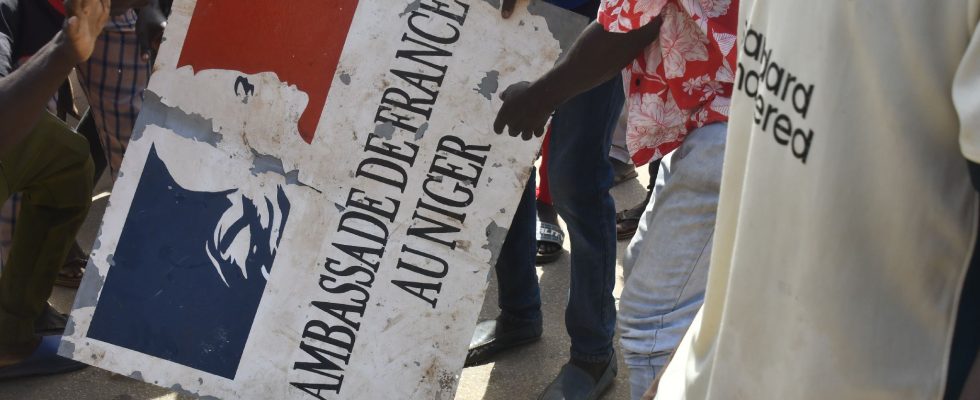Almost a month after having reversed power, and in a latent context of demonstrations and declarations hostile to French policy, the putschist regime wants to take a further step: the expulsion of the French ambassador to Niger.
The Nigerien Ministry of Foreign Affairs announced on Friday August 25 that, faced with “the ambassador’s refusal to respond to the invitation […] for an interview” and “other actions of the French government contrary to the interests of Niger”, the authorities “decided to withdraw their approval from Sylvain Itté and to ask him to leave Nigerien territory within forty-eight hours”.
A decision strongly contested in the wake of Paris. The French Ministry of Foreign Affairs replied that “the putschists have no authority to make this request, the approval of the ambassador emanating only from the legitimate elected Nigerien authorities”, that is to say those of President Mohamed Bazoum overthrown on July 26. This position is shared by Hassoumi Massoudou, head of diplomacy for the deposed president, who on X (ex-Twitter) recalls “that the ambassador is accredited to the elected President”.
The military regime surfs on anti-French sentiment. He notably accused Paris of wanting to intervene militarily in Niger to put Mohamed Bazoum back in place, and affirmed that the Economic Community of West African States (ECOWAS) was an organization “in the pay” of France, ex- colonial power in the region.
ECOWAS imposed heavy economic and financial sanctions on Niger after the coup and threatened the military regime to use armed force to restore constitutional order. For its part, France is deploying 1,500 men to Niger who have been helping the regime of President Bazoum to fight against the jihadist groups which have bloodied this country and a large part of the Sahel for years.
On Wednesday, French President Emmanuel Macron again called for the “restoration of constitutional order” in Niger and the release of the elected president. “This coup is a blow against democracy in Niger, against the people of Niger and against the fight against terrorism,” he said.
Demonstration in front of the embassy
Four days after the coup d’etat, hundreds of supporters of the military who had taken power had demonstrated in front of the French embassy in Niamey, causing damage there. The demonstrators were then dispersed with tear gas and the regime accused Paris of having used weapons, which the French government categorically denied.
On August 3, the new masters of Niamey denounced a series of military agreements with France, a decision that Paris ignored, recognizing only Mohamed Bazoum as Niger’s legitimate ruler. Organizations hostile to the French military presence indicated this week that they intended to demonstrate from September 3 in front of the French military base in Niamey to demand the departure of the soldiers.
The soldiers also accused France of having repeatedly violated its closed airspace by decision of the regime, and of having “released terrorists”, which according to them constitutes “a real plan to destabilize (their) country”. . Accusations, once again, vigorously denied by Paris. Several demonstrations of support for the soldiers who took power were each time punctuated by slogans hostile to France and ECOWAS. Russia, which benefits from hostility towards Paris in the Sahel, has been praised and applauded.
Military Niger follows in the footsteps of Mali and Burkina Faso, where there is no longer a French ambassador. These two countries, also led since 2020 and 2022 by soldiers who took power by force and faced with jihadist violence, showed solidarity with the generals of Niamey, saying they were ready to fight alongside the Nigerien army in the event of an emergency. ECOWAS intervention.
